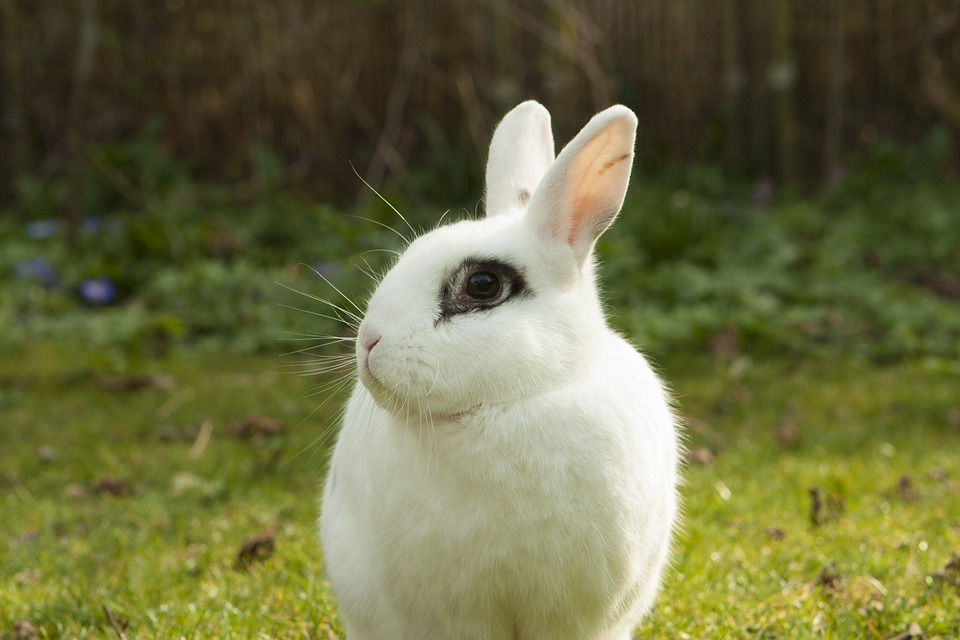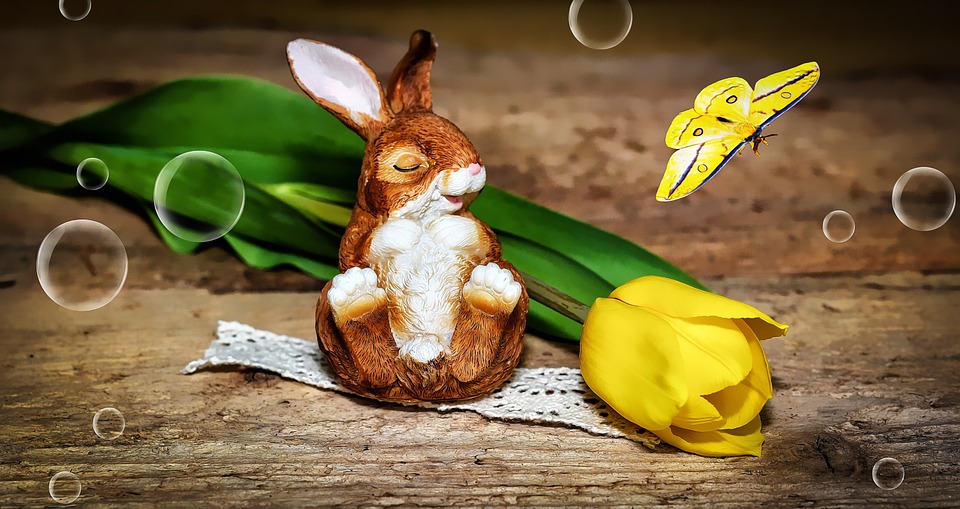This comprehensive guide explores the intricacies of incorporating squash into your rabbit's diet, providing valuable insights for responsible owners. We'll discuss the nutritional benefits, potential risks, safe preparation methods, and address common questions about feeding squash to your furry friend.
Part 1: The Nutritional Value of Squash

1.1 Squash: A Nutrient-Rich Treat
Squash is a versatile vegetable that can complement your rabbit's diet, offering an array of vitamins, minerals, and dietary fibre. It stands out as a good source of:
- Vitamin A: Crucial for maintaining healthy vision, skin, and a robust immune system.
- Vitamin C: A potent antioxidant that bolsters immune function and protects against cellular damage.
- Potassium: Essential for regulating muscle function and maintaining proper fluid balance.
- Fibre: Promotes healthy digestion and ensures regular bowel movements, preventing digestive issues.
1.2 Types of Squash Suitable for Rabbits
Not all squash varieties are suitable for rabbit consumption. Here's a breakdown of safe and palatable choices:
- Butternut Squash: A popular choice due to its mildly sweet flavour, high nutritional content, and firm texture that holds up well during cooking.
- Acorn Squash: Shares a similar flavour profile with butternut squash, offering a slightly firmer texture that some rabbits prefer.
- Kabocha Squash: Highly valued for its vibrant orange flesh, mildly sweet taste, and abundance of nutrients.
- Spaghetti Squash: Its unique stringy flesh resembles spaghetti when cooked, making it a fun and appealing treat for rabbits. However, ensure the seeds are thoroughly removed.
Part 2: Potential Risks of Feeding Squash

2.1 Sugar Content and its Implications
While squash is a nutritious treat, its moderate sugar content requires careful consideration. Excessive consumption can lead to:
- Dental Problems: Sugar feeds bacteria in the mouth, contributing to tooth decay and potential complications.
- Weight Gain: Excess sugar can lead to obesity, increasing the risk of various health problems like heart disease and diabetes.
- Digestive Issues: Sugar can disrupt the balance of gut bacteria, leading to diarrhoea, gas, and other digestive discomfort.
2.2 The Importance of Seed and Skin Removal
The seeds and skin of squash contain compounds that are toxic to rabbits. It's essential to:
- Remove Seeds Thoroughly: Carefully scoop out all seeds before feeding squash to your rabbit.
- Discard Skin Completely: Avoid feeding any part of the skin, as it contains the highest concentration of potentially harmful compounds.
- Choose Young Squash: Younger squash generally has a thinner, more manageable skin and contains fewer toxins.
Part 3: Preparing Squash for Safe Consumption
3.1 Cooking Methods for Optimal Digestion
Squash should always be cooked before feeding it to your rabbit. This enhances digestibility and reduces the risk of digestive upset.
- Boiling: A simple and reliable method. Boil until the squash is tender, then cool and chop into bite-sized pieces.
- Steaming: Preserves more nutrients compared to boiling. Steam until soft, then cool and chop into manageable portions.
- Roasting: Adds a flavour dimension and can be a convenient method for preparing squash for multiple rabbits.
3.2 Serving Size Recommendations
The appropriate serving size for squash varies depending on your rabbit's size, age, and activity level. A general guideline:
- Small Rabbits: A few small pieces, no more than once a week.
- Medium Rabbits: A few medium-sized pieces, no more than twice a week.
- Large Rabbits: A few large pieces, no more than twice a week.
Part 4: Incorporating Squash into Your Rabbit's Diet
4.1 Squash as a Treat, Not a Staple Food
Squash is best offered as an occasional treat rather than a regular part of your rabbit's diet. Introduce it gradually to avoid digestive upsets:
- Start Small: Offer a small piece and monitor your rabbit's reaction closely.
- Observe for Digestive Issues: Watch for any signs of diarrhoea, gas, or other discomfort.
- Increase Portion Gradually: If well-tolerated, slowly increase the amount over several days.
4.2 Alternatives to Squash
If your rabbit experiences digestive issues after eating squash, consider alternative healthy treats:
- Bananas: A good source of potassium and fibre, but should be given in moderation due to their sugar content.
- Apples: Offer a small slice, removing the core and seeds. Choose organic apples whenever possible to avoid pesticide exposure.
- Strawberries: A sweet treat, but should be given in moderation due to their sugar content. Ensure they are washed thoroughly.
- Bell Peppers: A good source of vitamins and fibre. Choose red bell peppers for a sweeter taste and a richer nutrient profile.
- Parsley: A good source of vitamin C and a breath freshener for your rabbit. Offer small amounts as a treat.
Part 5: Understanding Common Squash-Related Questions
5.1 Can I give my rabbit raw squash?
No, raw squash is not recommended. It can be tough and difficult to digest, leading to digestive problems. Cooking breaks down the complex carbohydrates and makes it easier for rabbits to absorb nutrients.
5.2 Can I give my rabbit pumpkin instead of squash?
Yes, pumpkin is generally safe for rabbits, but choose pure pumpkin puree, as the spiced versions contain added sugar and other ingredients harmful to rabbits. Pumpkin offers similar nutritional benefits to squash but is often preferred by rabbits due to its sweeter taste.
5.3 What if my rabbit has diarrhoea after eating squash?
If your rabbit develops diarrhoea after eating squash, stop feeding it immediately. Monitor your rabbit for signs of dehydration, such as lethargy, decreased appetite, and sunken eyes. Contact your veterinarian for advice and possible treatments.
5.4 How often should I offer my rabbit squash?
Squash should be offered as an occasional treat, no more than twice a week. Overfeeding can lead to digestive problems and weight gain.
5.5 Can I give my rabbit butternut squash seeds?
No, butternut squash seeds are not safe for rabbits. They contain compounds that can be toxic. Always remove the seeds completely before feeding squash to your rabbit.
5.6 Is squash better than other vegetables for rabbits?
Squash is a nutritious treat, but it is not necessarily "better" than other vegetables. A balanced diet should include a variety of fresh hay, vegetables, and a small amount of rabbit pellets.
5.7 Can I give my rabbit squash leaves?
No, squash leaves are not recommended for rabbit consumption. They contain compounds that can be toxic to rabbits. Stick to the flesh of the squash for safe and healthy treats.
Part 6: Further Considerations for Squash Feeding
6.1 Individual Rabbit Variations
While these guidelines provide a general framework, it's essential to recognize that each rabbit is unique. Some rabbits might be more sensitive to sugar or have specific digestive sensitivities.
6.2 Observe Your Rabbit's Reaction
Always observe your rabbit's reaction to new foods, including squash. If you notice any signs of digestive upset, discontinue feeding it and consult your veterinarian.
6.3 Consult with a Veterinarian
Before introducing any new foods to your rabbit's diet, consult with your veterinarian for personalized advice based on your rabbit's health, age, and breed.
Conclusion
Incorporating squash into your rabbit's diet can offer nutritional benefits, but it's crucial to do so responsibly. By understanding the potential risks, adopting safe preparation methods, and paying close attention to your rabbit's individual needs, you can ensure that squash serves as a healthy and enjoyable treat.
Everyone is watching
-

Do Rabbits Lay Eggs? (The Surprising Truth)
OTHER TYPES OF PETSThis article will unravel the common misconception that rabbits lay eggs, exploring the fascinating world of r...
-

Can Rabbits Eat Grapes? A Guide to Safe Rabbit Treats
OTHER TYPES OF PETSThis comprehensive guide will explore the safety and suitability of grapes for rabbits, providing detailed inf...
-

What's a Group of Rabbits Called? (A Comprehensive Guide)
OTHER TYPES OF PETSThis article delves into the fascinating world of rabbits, exploring the various terms used to describe a grou...
-

Predators That Hunt Rabbits: A Guide to Natural Enemies
OTHER TYPES OF PETSI've always been fascinated by the circle of life, that delicate dance between predator and prey. Growing up ...
-

Are Rabbits Nocturnal Animals?
OTHER TYPES OF PETSThe question of whether rabbits are nocturnal animals is a fascinating one, with a surprisingly complex answer...
